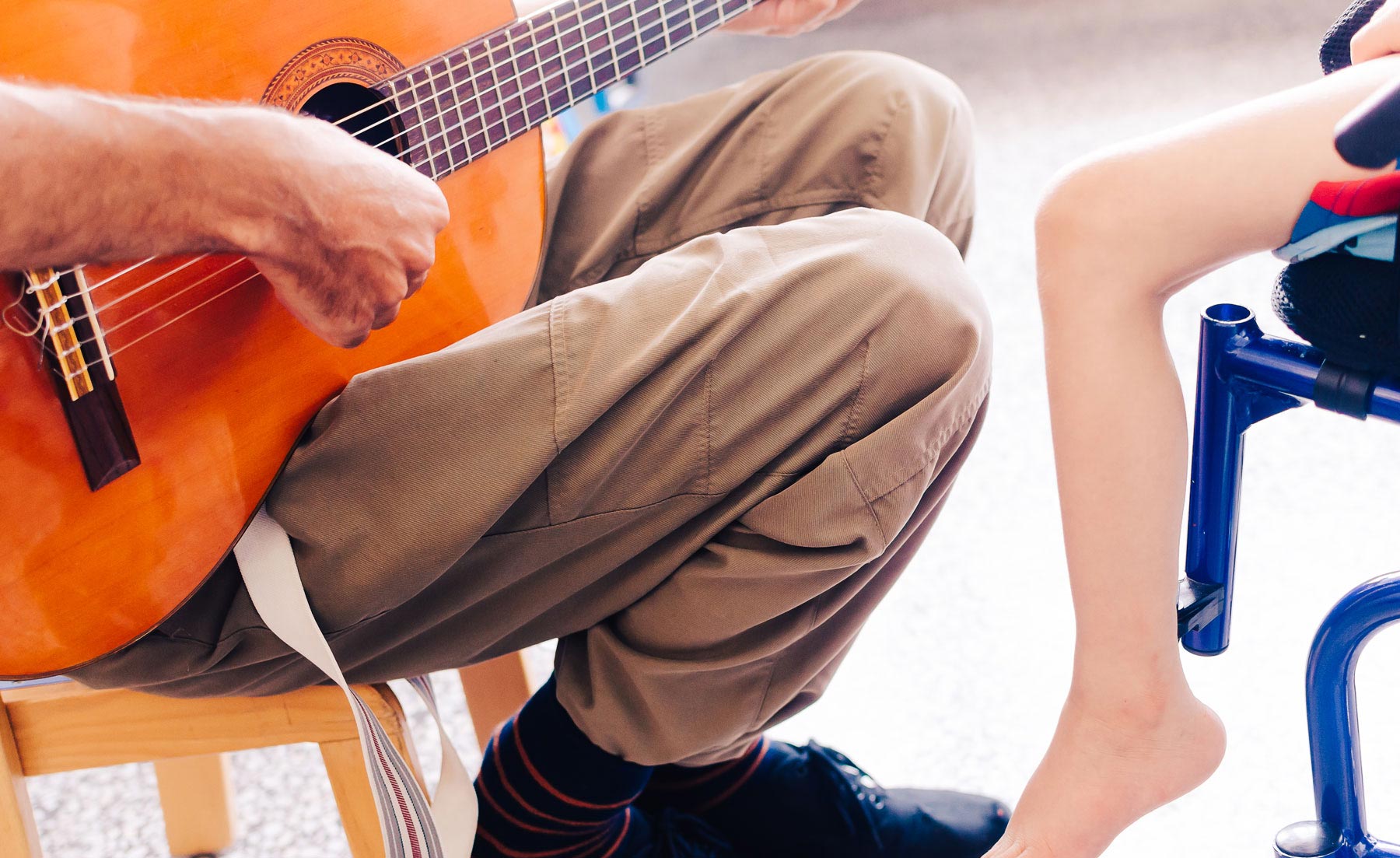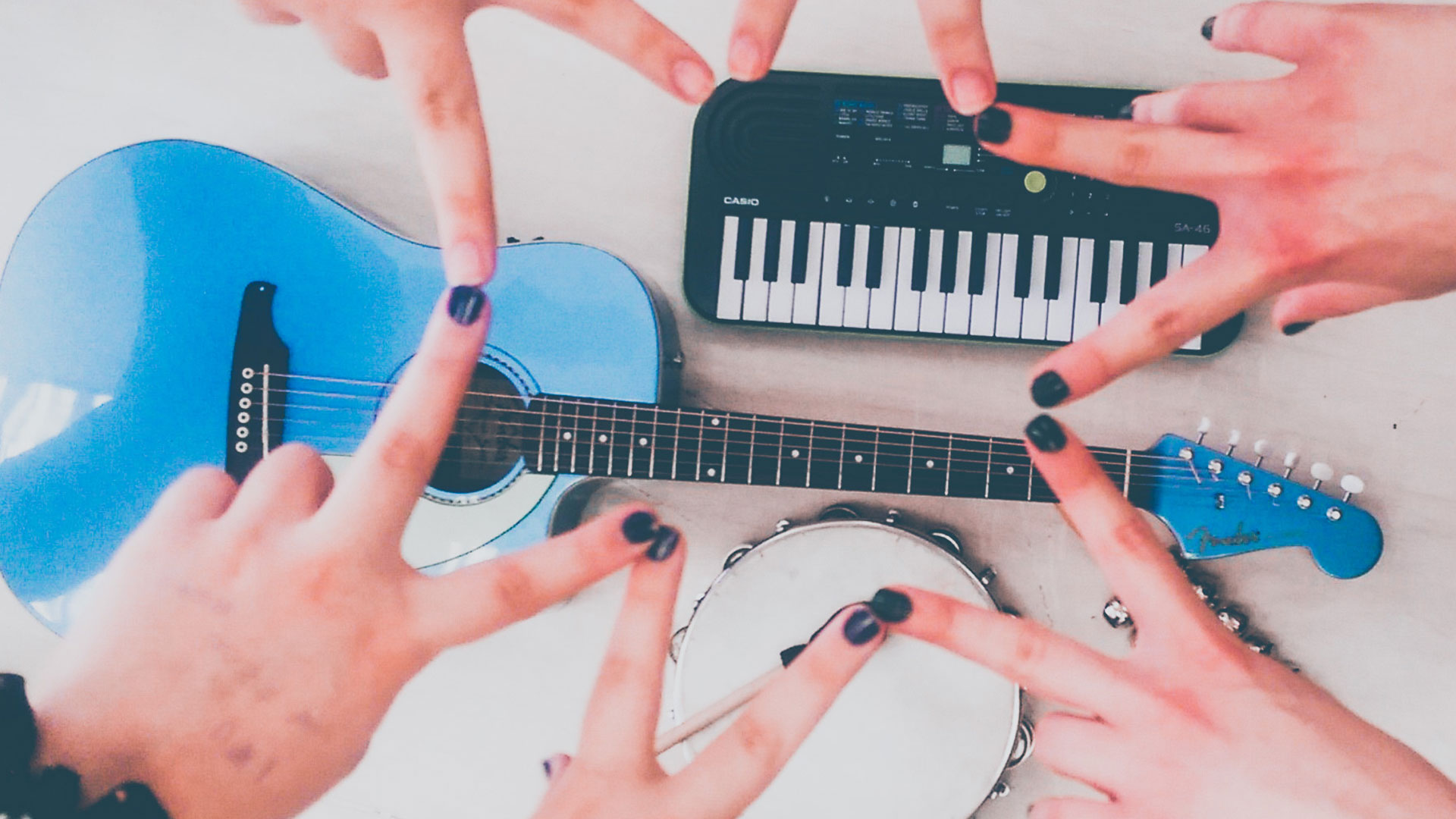Dimitris Koukourakis: In the burdened and difficult environments we were visiting, there was clearly a need for a purely therapeutic program, in addition to the programs we already had in place, which were mainly of an artistic and educational nature.
As a recognized scientific field, music therapy complemented our programming within health facilities in a remarkable and important way. Scientific research supports the use of music as a therapeutic tool because of the positive changes it can cause in one’s mood and in the non-verbal expression of difficult emotions.
Christina Kalliodi: Hospitalization in the Neonatal Intensive Care Unit (NICU) is often a traumatic experience with difficulties for both premature and term infants and their parents, who are a high-risk group for development of postpartum depression, anxiety disorder, and post-traumatic stress disorder. For this reason, early intervention programs are now being developed internationally that focus on individualized support for the physical, developmental, and psychosocial needs of hospitalized infants and their families. Knowing the above, and in combination with my own experience as a music therapist specializing in this field, we contacted the NICU at Pan. & Aglaia Kyriakou Children’s Hospital (a hospital with which Angels of Joy had already established a successful, long-term partnership) to explore their needs and interest. The management of the NICU has been promoting and supporting this family-centered approach for years, so they felt that such an intervention would further enhance the quality of care offered to young patients and their families.



